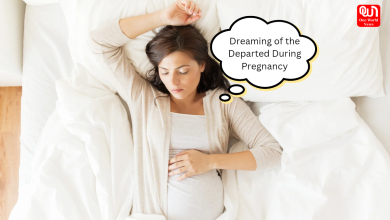In conversation with Dr Meenakshi Ahuja – understanding PCOS

PCOD and PCOS- Are they different or the same thing?
Let us being by watching this video to give you a slight insight into what we will be dealing with today.
We have all heard the words PCOD and PCOS, but do we know what it is? Is there a difference between the two or are they the same?
Before we begin, let us look at some statistics-
- Every one in five Indian women suffer from PCOS. That is a high percentage of 20%!
- Globally PCOS is estimated to be somewhere between 6% to 26%.
- It is usually between the age of 15 and 44 that PCOS can happen- it can happen at any age after puberty. The 20s and 30s are the most common time when women find out that they have PCOS because they start planning their pregnancies and face problem for the same.
- The prevalence rate of PCOS in Indian adolescents is 9.13%
- 50% of women suffering from PCOS are at risk for getting pre-diabetes or full-blown diabetes.
- There is a twofold risk of getting endometrial cancer.
- Women with PCOS have a higher risk of developing high blood pressure.
- 80% of women suffering from PCOS are obese
Is there a difference between PCOD and PCOS?
“Your doctor will usually use both terms interchangeably and there is no difference between the two generally
Technically speaking, Poly Cystic Ovarian Disease or PCOD would mean the ovaries are showing multiple cysts on ultrasound, while the PCOS or Polycystic Ovarian Syndrome would indicate the gamut of manifestations or changes in the body which would be seen because of the ovaries.
So actually, both the terms refer to the same thing, despite what the internet may have led you to believe.” says Dr Meenakshi Ahuja, Director of Obstetrics and Gynaecology, Fortis La Femme, Delhi.
What is PCOD?
PCOD (Polycystic Ovarian Disease) is a condition that leads to the forming of cysts due to the ovaries releasing a lot of immature of partially mature eggs. Women have two ovaries that release eggs alternatively each month. Excessive release of premature eggs may lead to the formation of cysts.
Read more: Girls are Less Tech-Savvy. Parenting Problems that Let this Happen?
It is a hormonal disorder that affects women in the reproductive age group. It is important to understand that PCOS is a syndrome and not a disease.
What are the symptoms of PCOS?
Dr Meenaskshi says- “So, this disease is suspected when a woman in her reproductive years(15-45 or so) has irregular menstrual cycles, facial or excessive body hair, hair thinning on the scalp, and weight or difficulty in losing weight.
One or more symptoms would point towards PCOS, but there are other reasons for these symptoms which will need to be ruled out too.”
PCOS also leads to other serious health issues such as- diabetes, high blood pressure, uterus cancer, high cholesterol and many more.
What are the causal factors of PCOS?
“PCOS is somehow linked genetically to diabetes, and unfortunately the Asian subcontinent carried the biggest burden of diabetes and metabolic syndrome in the world, it gets precipitated by lack of exercise and bad eating habits, hence is also termed a lifestyle disease.”
What treatment is offered for curing PCOS?
“So, PCOS will usually not be cured because it is in your genetic makeup but is definitely treatable and can be maintained lifelong with diet and exercise. It requires counselling and motivation to correct it, because, exercise, healthy eating and medication will go hand in hand in the treatment. PCOS is not an indication for surgical treatment.”
What self-care tips should be taken to lessen the symptoms and lead a healthier life?
“As I said, it’s a lifestyle disease. So a good workout which might be walking, running, power yoga, gymming, regular swimming is essential. Also, a well-balanced diet with low calorific value, but extremely healthy, including proteins like milk, pulses, eggs, meat, fruits and vegetables for fibre and roughage, limited or low glycemic, carbohydrates like whole grains and millets, and small amounts of good fats from nuts and seeds will definitely prevent the problems linked with PCOS which if left untreated would also lead to infertility and diabetes in later life.”
Have a news story, an interesting write-up or simply a suggestion? Write to us at info@oneworldnews.com







